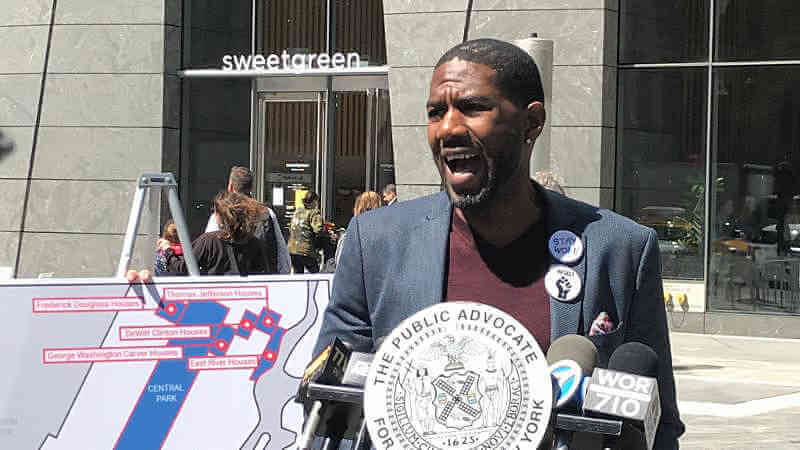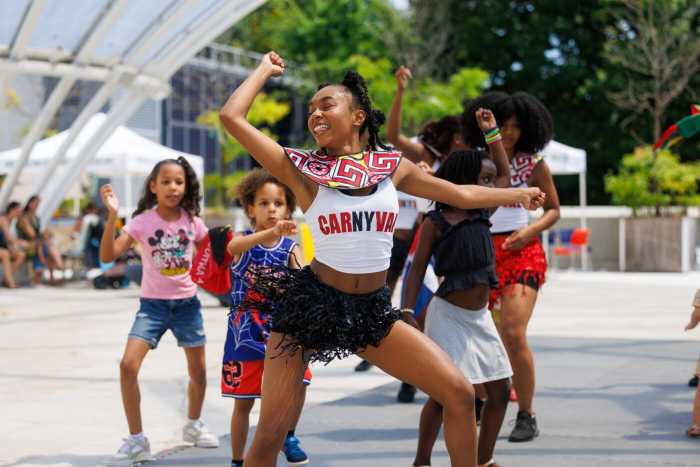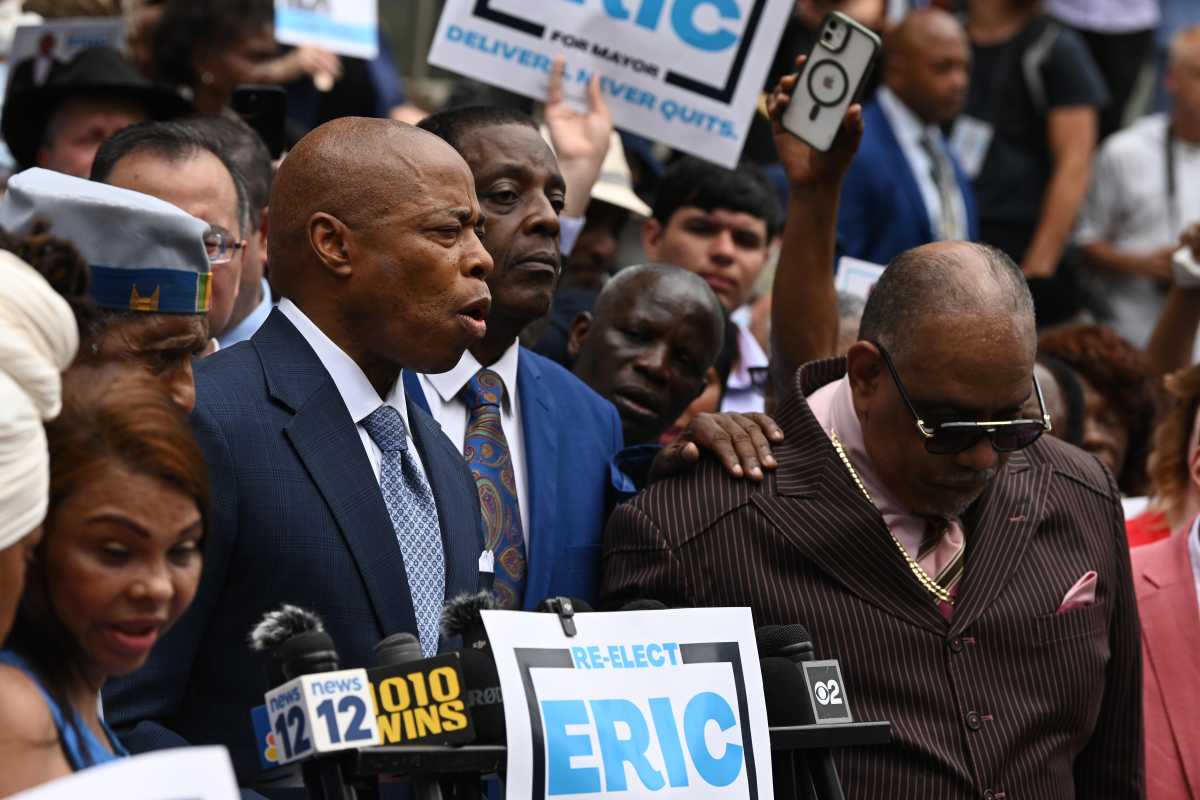Public Advocate Jumaane D. Williams on Wednesday submitted testimony to the New York State Complete Count Commission for its hearing on the upcoming 2020 Census.
Williams underscored the need to ensure a “complete and accurate count of all communities, especially after the Trump Administration’s failed efforts to add a citizenship question to the census itself.”
“I applaud the efforts of the New York State Complete Count Commission in receiving the public’s opinion on ways to ensure a full and complete count for the 2020 Census,” he said. “As the Public Advocate for the City of New York, I serve as the direct link between New Yorkers and their government. The Office of the Public Advocate serves as a watchdog to ensure that city agencies are as efficient and effective as demanded by the people of New York.”
Williams said it was important that the hearing is being held at the Brooklyn Borough Hall “as Brooklyn marks the hardest to count county in all of New York State.”
In the 2010 Census, he said 33 percent of Brooklyn households did not mail back their census forms, resulting in the lowest mail return rate in the US among counties with population over 500,000.
He said ensuring a full and complete count has been a priority for the Office of the Public Advocate.
Since he took office in March, Williams said he has “continuously engaged with advocates who aim to ensure vulnerable communities are counted.”
“Given this current federal administration, many of our previously undercounted communities in New York City have expressed an inherent fear of responding to the Census, and many of our efforts have been to mitigate said fear,” he said. “Further, underrepresented constituents have expressed their uncertainty on the overall importance of this upcoming Census.”
But while New York State has challenged and successfully eliminated the citizenship question, Williams said “the fear instilled in our immigrant community has already had a profound impact.”
He said New York city advocates have dedicated their time in emphasizing the importance of the Census to vulnerable communities in specific spots in New York City.
The Public Advocate noted that the State of New York provided $20 million into funding for the Census, but added that “there is a lack of transparency on how that money is spent.”
Williams said he strongly believes that the State of New York focus on allocating the funding towards community-based organizations that have spent years advocating for and providing services to these vulnerable populations in concentrated immigrant communities.
“Each undercounted population often go unnoticed due to lack of resources,” he said. “By putting resources in the hands of communities, community members and local activists will be able to stress the urgency and importance of the Census directly through word-of-mouth and door knockings.
“A hyper-local approach will yield a fuller and more complete count, as community organizations best know their constituents and can de-stigmatize the fear around the Census,” he added.
As the upcoming census will have a digital component for the first time in history, Williams wants to ensure that all New Yorkers are prepared for the “pitfalls” that may arise.
In neighborhoods like Chinatown, Hunts Point, Kensington and Jamaica, he said up to 50 percent of homes do not have internet access.
Citywide, he said about 30 percent of Black and Hispanic New Yorkers lack broadband, compared to 20 percent among other racial or ethnic groups.
“This creates an inherent disparity, another important reason why advocates have continuously emphasized additional funding for outreach in certain communities,” Williams said. “We must ensure we are not creating a digital divide by assuming everyone will have access to broadband internet at the time of the upcoming census,” he said.
At the same time, Williams said State of New York must continue being vigilant about potential abuses that are “inherently racist or anti-immigrant in nature during the Census.”
Specifically, he urged the Commission to consider implementing a program in which everyone involved in any Census-related litigation has the legal right to a public defender by the State of New York.
“Should anything go wrong because of the Citizenship status while filling out the Census, the State should provide resources for every citizen susceptible to the current administration’s violence,” Williams said.
In addition, he urged that there be emphasis on language access, particularly improving interpretation services for languages not acknowledged by the State of New York.
William said few campaigns include dialects and languages from the Caribbean and Asian communities, for example.
“Accessibility is a crucial step in ensuring a full and complete count,” he said.
“By utilizing a hyper-local approach in funding, ensuring the safety of all New Yorkers through an intensive public defense system, and expanding the scope of all upcoming campaigns, the commission can support underrepresented populations during the upcoming 2020 Census,” he added.

























